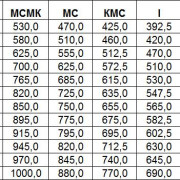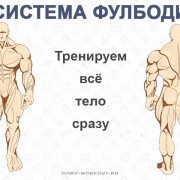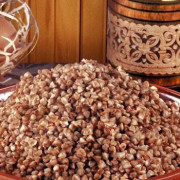6 popular ways to do intermittent fasting
Содержание:
- Drawbacks of 16/8 Intermittent Fasting
- Does Intermittent Fasting Help with Weight Loss?
- Potential benefits of practicing both
- How to Intermittent Fast Safely
- 6. Spontaneous meal skipping
- Рецепт «Греческий пирог с брынзой»:
- What Is 16/8 Intermittent Fasting?
- Recommended foods and tips
- Subscribe to our daily newsletter
- A Very Powerful Weight Loss Tool
- How to Do Intermittent Fasting 16/8
- What is intermittent fasting?
- Пищевая и энергетическая ценность:
- What Is Intermittent Fasting (IF)?
- What is intermittent fasting?
- 8. Intermittent Fasting is Good For Your Brain
- Health Benefits of 16/8 Intermittent Fasting
- Is 16/8 Intermittent Fasting Right for You?
- Как проходит голодание
- Benefits of 16/8 Intermittent Fasting
- Outlook
- Is 16:8 fasting good for weight loss?
- What Happens to Your Body When You Fast?
- Кто это придумал
- What Is Intermittent Fasting?
- Видео про периодическое голодание
Drawbacks of 16/8 Intermittent Fasting
16/8 intermittent fasting may be associated with many health benefits, but it does come with some drawbacks and may not be right for everyone.
Restricting your intake to just eight hours per day can cause some people to eat more than usual during eating periods in an attempt to make up for hours spent fasting.
This may lead to weight gain, digestive problems and the development of unhealthy eating habits.
16/8 intermittent fasting may also cause short-term negative side effects when you’re first getting started, such as hunger, weakness and fatigue — though these often subside once you get into a routine.
Additionally, some research suggests that intermittent fasting may affect men and women differently, with animal studies reporting that it could interfere with fertility and reproduction in females ().
However, more human studies are needed to evaluate the effects that intermittent fasting may have on reproductive health.
In any case, be sure to start gradually and consider stopping or consulting your doctor if you have any concerns or experience negative symptoms.
Does Intermittent Fasting Help with Weight Loss?
The obvious answer is when you’re fasting, you’re eating fewer calories, but there’s more to it than that. Intermittent fasting actually changes both sides of the weight-loss equation—fewer calories in and more calories out. The eating pattern changes your hormone levels, increasing the release of the fat-burning hormone norepinephrine and normalizing levels of ghrelin (the hunger hormone). It also decreases insulin levels and increases human growth hormone. All of that together leads to an increase in your metabolic rate, studies show.
«If you’re improving insulin levels (which intermittent fasting does), you’ll have an easier time losing weight than you would with chronically high levels of the fat-storage hormone,» says Champion.
Essentially, intermittent fasting makes your body work more efficiently. The hormone changes make stored body fat more accessible, and the decrease in insulin levels increases insulin sensitivity. Without going into a full-blown science lesson, we can tell you the more sensitive your body is to insulin, the more likely it is to efficiently use the food you consume.
That said, there’s one key factor that can influence intermittent fasting and its ability to help with weight loss. «Intermittent fasting works best when you’re focused on healthy foods inside your eating window. Pizza and Cheetohs won’t have the same effect avocados and broccoli will,» explains Champion.
Claudia Totir / Getty Images
Potential benefits of practicing both
If you commit to the ketogenic diet while doing intermittent fasting as well, it could offer the following benefits.
May smooth your path to ketosis
Intermittent fasting may help your body reach ketosis quicker than the keto diet alone.
That’s because your body, when fasting, maintains its energy balance by shifting its fuel source from carbs to fats — the exact premise of the keto diet ().
During fasting, insulin levels and glycogen stores decrease, leading your body to naturally start burning fat for fuel ().
For anyone who struggles to reach ketosis while on a keto diet, adding intermittent fasting may effectively jumpstart your process.
May lead to more fat loss
Combining the diet and the fast may help you burn more fat than the diet alone.
Because intermittent fasting boosts metabolism by promoting thermogenesis, or heat production, your body may start utilizing stubborn fat stores ().
Several studies reveal that intermittent fasting can powerfully and safely drop excess body fat.
In an eight-week study in 34 resistance-trained men, those who practiced the 16/8 method of intermittent fasting lost nearly 14% more body fat than those following a normal eating pattern ().
Similarly, a review of 28 studies noted that people who used intermittent fasting lost an average of 7.3 pounds (3.3 kg) more fat mass than those following very low-calorie diets ().
Plus, intermittent fasting may preserve muscle mass during weight loss and improve energy levels, which may be helpful for keto dieters looking to improve athletic performance and drop body fat (, ).
Additionally, studies underscore that intermittent fasting can reduce hunger and promote feelings of fullness, which may aid weight loss ().
How to Intermittent Fast Safely
To follow the 16:8 intermittent fasting plan safely, you need to make sure to stay well hydrated while not eating by drinking plenty of water. Coffee or unsweetened green tea may be consumed in the morning to help fuel your workout (or you can use Pre-Workout), as long as you are not adding any cream or sweeteners.
There is some thought that consuming aBCAA supplement right before your fasted workout can help to prevent muscle loss.1
When you’re in the 8-hour eating period, it’s crucial to obtain high quality meals containing all of your necessary macros (protein, carbs and fat) and vitamins/minerals for the day. Be sure to stay hydrated and meet your protein needs to prevent any lean muscle loss. It may be more difficult to obtain adequate calories in a short period of time, which may lead to weakness or dizziness.3
Additionally, be cautious of not overeating just because you know you have another 16-hour fasting period ahead. Intermittent fasting is designed to keep your body in deficit for the day as a whole, so be cautious not to binge on high-calorie junk foods.6
While there are promising outcomes of intermittent fasting, there’s an opportunity for further research related to performance and health benefits.3 Many of the studies thus far were on overweight- or all-male subjects.
If you have blood sugar control issues, like diabetes or hypoglycemia, intermittent fasting may not be a good fit. Alternatively, if you are pregnant or breastfeeding, or take medications that are taken with food, speak to you doctor before trying the 16:8 diet.
6. Spontaneous meal skipping
You don’t need to follow a structured intermittent fasting plan to reap some of its benefits. Another option is to simply skip meals from time to time, such as when you don’t feel hungry or are too busy to cook and eat.
It’s a myth that people need to eat every few hours lest they hit starvation mode or lose muscle. Your body is well equipped to handle long periods of famine, let alone missing one or two meals from time to time.
Thus, if you’re really not hungry one day, skip breakfast and just eat a healthy lunch and dinner. Or, if you’re travelling somewhere and can’t find anything you want to eat, do a short fast.
Skipping one or two meals when you feel inclined to do so is basically a spontaneous intermittent fast.
Just make sure to eat healthy foods during the other meals.
Рецепт «Греческий пирог с брынзой»:
What Is 16/8 Intermittent Fasting?

16/8 intermittent fasting involves limiting consumption of foods and calorie-containing beverages to a set window of eight hours per day and abstaining from food for the remaining 16 hours.
This cycle can be repeated as frequently as you like — from just once or twice per week to every day, depending on your personal preference.
16/8 intermittent fasting has skyrocketed in popularity in recent years, especially among those looking to lose weight and burn fat.
While other diets often set strict rules and regulations, 16/8 intermittent fasting is easy to follow and can provide real results with minimal effort.
It’s generally considered less restrictive and more flexible than many other diet plans and can easily fit into just about any lifestyle.
In addition to enhancing weight loss, 16/8 intermittent fasting is also believed to improve blood sugar control, boost brain function and enhance longevity.
Recommended foods and tips
While the 16:8 intermittent fasting plan does not specify which foods to eat and avoid, it is beneficial to focus on healthful eating and to limit or avoid junk foods. The consumption of too much unhealthful food may cause weight gain and contribute to disease.
A balanced diet focuses primarily on:
- fruits and vegetables, which can be fresh, frozen, or canned (in water)
- whole grains, including quinoa, brown rice, oats, and barley
- lean protein sources, such as poultry, fish, beans, lentils, tofu, nuts, seeds, low fat cottage cheese, and eggs
- healthful fats from fatty fish, olives, olive oil, coconuts, avocados, nuts, and seeds
Fruits, vegetables, and whole grains are high in fiber, so they can help keep a person feeling full and satisfied. Healthful fats and proteins can also contribute to satiety.
Beverages can play a role in satiety for those following the 16:8 intermittent fasting diet. Drinking water regularly throughout the day can help reduce calorie intake because people often mistake thirst for hunger.
The 16:8 diet plan permits the consumption of calorie-free drinks — such as water and unsweetened tea and coffee — during the 16-hour fasting window. It is important to consume fluids regularly to avoid dehydration.
Tips
People may find it easier to stick to the 16:8 diet when they follow these tips:
- drinking cinnamon herbal tea during the fasting period, as it may suppress the appetite
- consuming water regularly throughout the day
- watching less television to reduce exposure to images of food, which may stimulate a sense of hunger
- exercising just before or during the eating window, as exercise can trigger hunger
- practicing mindful eating when consuming meals
- trying meditation during the fasting period to allow hunger pangs to pass
Get the best food tips and diet advice every day.
A Very Powerful Weight Loss Tool
Weight loss is the most common reason for people to try intermittent fasting ().
By making you eat fewer meals, intermittent fasting can lead to an automatic reduction in calorie intake.
Additionally, intermittent fasting changes hormone levels to facilitate weight loss.
In addition to lowering insulin and increasing growth hormone levels, it increases the release of the fat burning hormone norepinephrine (noradrenaline).
Because of these changes in hormones, short-term fasting may increase your metabolic rate by 3.6–14% (, ).
By helping you eat fewer and burn more calories, intermittent fasting causes weight loss by changing both sides of the calorie equation.
Studies show that intermittent fasting can be a very powerful weight loss tool.
A 2014 review study found that this eating pattern can cause 3–8% weight loss over 3–24 weeks, which is a significant amount, compared to most weight loss studies ().
According to the same study, people also lost 4–7% of their waist circumference, indicating a significant loss of harmful belly fat that builds up around your organs and causes disease ().
Another study showed that intermittent fasting causes less muscle loss than the more standard method of continuous calorie restriction ().
However, keep in mind that the main reason for its success is that intermittent fasting helps you eat fewer calories overall. If you binge and eat massive amounts during your eating periods, you may not lose any weight at all.
How to Do Intermittent Fasting 16/8
To do intermittent fasting correctly and reap all the health benefits, here’s what to do:
- Pick your fasting window: Choose what the hours of fasting will be. The easiest approach is to have an early dinner and skip your morning breakfast. For example, eating only from 1 p.m. to 9 p.m.
- Have healthy meals during your eating window: A bad diet during your eating window can offset the metabolic benefits of intermittent fasting, so stick to nutritious whole foods. Here’s a list of the best keto-friendly foods to eat.
- Eat fatty, satisfying meals: While you don’t need to be keto to try intermittent fasting, eating fatty foods will make it a lot easier and sustainable. Keto foods are healthy and satisfying, so you won’t be hungry during your fasting window. Practice smart snacking and you’ll do great.
What is intermittent fasting?
Intermittent fasting is an eating method that cycles between calorie restriction — or fasting — and normal food consumption during a specific time period ().
There are many different types of intermittent fasting routines, including the 5:2 method, the Warrior Diet and alternate-day fasting.
Perhaps the most popular kind of intermittent fasting is the 16/8 method, which involves eating during an eight-hour timeframe before fasting for 16.
Intermittent fasting is mainly used as a weight loss technique.
However, studies found that it may benefit health in many other ways.
For example, intermittent fasting has been shown to reduce inflammation and improve brain function and blood sugar control (, , ).
Пищевая и энергетическая ценность:
What Is Intermittent Fasting (IF)?
Intermittent fasting (IF) is an eating pattern that cycles between periods of fasting and eating.
It doesn’t specify which foods you should eat but rather when you should eat them.
In this respect, it’s not a diet in the conventional sense but more accurately described as an eating pattern.
Common intermittent fasting methods involve daily 16-hour fasts or fasting for 24 hours, twice per week.
Fasting has been a practice throughout human evolution. Ancient hunter-gatherers didn’t have supermarkets, refrigerators or food available year-round. Sometimes they couldn’t find anything to eat.
As a result, humans evolved to be able to function without food for extended periods of time.
In fact, fasting from time to time is more natural than always eating 3–4 (or more) meals per day.
Fasting is also often done for religious or spiritual reasons, including in Islam, Christianity, Judaism and Buddhism.
What is intermittent fasting?

Intermittent fasting – isn’t that starvation?
No. Fasting differs from starvation in one crucial way: control. Starvation is the involuntary absence of food for a long time. This can lead to severe suffering or even death. It is neither deliberate nor controlled.
On the other hand, fasting is the voluntary avoidance of food for spiritual, health, or other reasons. It’s done by someone who is not underweight and has enough stored body fat to live off. When done correctly, fasting should not cause suffering, and certainly never death.
Food is easily available, but you choose not to eat it. This can be for any period of time, from a few hours up to a few days or – with medical supervision – even a week or more. You may begin a fast at any time of your choosing, and you may end a fast at will too.
Anytime you are not eating, you are intermittently fasting.For example, you may fast between dinner and breakfast the next day, a period of approximately 12-14 hours. In that sense, intermittent fasting should be considered a part of everyday life.Consider the term “break fast.” This refers to the meal that breaks your fast – which is done daily.
Intermittent fasting is not something unusual but a part of everyday, normal life. It is perhaps the oldest and most powerful dietary intervention imaginable. Yet somehow we have missed its power and overlooked its therapeutic potential.
Learning how to fast properly gives us the option of using it or not.
To get started, either watch our brief video course on intermittent fasting or keep reading below.
345,923 views
8. Intermittent Fasting is Good For Your Brain
What is good for the body is often good for the brain as well.
Intermittent fasting improves various metabolic features known to be important for brain health.
This includes reduced oxidative stress, reduced inflammation and a reduction in blood sugar levels and insulin resistance.
Several studies in rats have shown that intermittent fasting may increase the growth of new nerve cells, which should have benefits for brain function (, ).
It also increases levels of a brain hormone called brain-derived neurotrophic factor (BDNF) (, , ), a deficiency of which has been implicated in depression and various other brain problems ().
Animal studies have also shown that intermittent fasting protects against brain damage due to strokes ().
Health Benefits of 16/8 Intermittent Fasting
Adopting this eating style may seem difficult if you’ve never tried it before, but once you get used to it, it’s easy to follow. Plus, the research-backed benefits make it an excellent tool to improve your health.
Intermittent fasting 16/8 has been researched for its ability to improve multiple aspects of your health.
#1: Fat Loss
Intermittent fasting can help both healthy and overweight adults lose weight and body fat effectively. Human intervention trials have consistently found IF significantly reduces weight as your body is in a fat-burning mode more often.
In almost any type of fasting, losing weight is a natural byproduct because you’re consuming fewer calories.
#2: Improved Cognitive Function
Another perk of intermittent fasting is that it can improve brain function, boost focus, and get rid of brain fog.
Studies find that restricting calories moderately can:
- Protect the brain by reducing oxidative damage to cellular proteins, lipids, and nucleic acids
- Elevate levels of BDNF, an important neurotrophin that is needed for synaptic plasticity
#3: Lower Inflammation
IF is also great for your brain and might help you think clearer. Intermittent fasting, or restricting calories, also lowers markers of inflammation, which in turn aids cognitive function and protects your brain health.
#4: Lower Blood Pressure
Research finds intermittent fasting can help reduce blood pressure. According to a recent study, people that restricted eating habits to a smaller period of time lost weight from a lower calorie intake, which then helped them lower their blood pressure.
#5: Blood Sugar Control
Intermittent fasting is also an excellent tool for blood sugar regulation. Research has found that IF reduces blood sugar, insulin, and improves insulin sensitivity.
#6: Better Metabolic Health
Due to the different beneficial effects of intermittent fasting on health markers, it supports overall metabolic health.
Research finds intermittent fasting can improve metabolic profiles and reduce the risk of obesity and obesity-related conditions such as non-alcoholic fatty liver disease, and chronic diseases such as diabetes and cancer.
#7: Longevity
The positive effects IF can have on your metabolic health, inflammatory markers, and blood sugar levels may contribute to a longer lifespan and healthy aging.
Even though human trials are still needed to measure IF’s impact on longevity, multiple animal studies show calorie restriction results in an increased lifespan.
Another way intermittent fasting can improve your health is by facilitating ketosis.
Is 16/8 Intermittent Fasting Right for You?
16/8 intermittent fasting can be a sustainable, safe and easy way to improve your health when paired with a nutritious diet and a healthy lifestyle.
However, it shouldn’t be viewed as a substitute for a balanced, well-rounded diet rich in whole foods. Not to mention, you can still be healthy even if intermittent fasting doesn’t work for you.
Though 16/8 intermittent fasting is generally considered safe for most healthy adults, you should talk to your doctor before giving it a try, especially if you have any underlying health conditions.
This is key if you’re taking any medications or have diabetes, low blood pressure or a history of disordered eating.
Intermittent fasting is also not recommended for women who are trying to conceive or those who are pregnant or breastfeeding.
If you have any concerns or experience any adverse side effects while fasting, be sure to consult your doctor.
Как проходит голодание
Курсы терапии, включающей отказ от пищи, в среднем длятся десять-двадцать дней, а в некоторых центрах — до месяца. В это время пациенты находятся под строгим наблюдением врачей. В российских санаториях и центрах лечебного голодания нужно предварительно пройти медицинское обследование — в первую очередь для того, чтобы выявить возможные противопоказания, например проблемы с почками, сахарный диабет, дефицит веса, злокачественные опухоли. Людям с такими проблемами голодание полностью противопоказано: слишком высок риск для здоровья и жизни.
Benefits of 16/8 Intermittent Fasting
16/8 intermittent fasting is a popular diet because it’s easy to follow, flexible and sustainable in the long term.
It’s also convenient, as it can cut down on the amount of time and money you need to spend on cooking and preparing food each week.
In terms of health, 16/8 intermittent fasting has been associated with a long list of benefits, including:
- Increased weight loss: Not only does restricting your intake to a few hours per day help cut calories over the course of the day, but studies also show that fasting could boost metabolism and increase weight loss (, ).
- Improved blood sugar control: Intermittent fasting has been found to reduce fasting insulin levels by up to 31% and lower blood sugar by 3–6%, potentially decreasing your risk of diabetes ().
- Enhanced longevity: Though evidence in humans is limited, some animal studies have found that intermittent fasting may extend longevity (, ).
Outlook
There are many different ways to do intermittent fasting, and there is no single plan that will work for everyone. Individuals will experience the best results if they try out the various styles to see what suits their lifestyle and preferences.
Regardless of the type of intermittent fasting, fasting for extended periods when the body is unprepared can be problematic.
These forms of dieting may not be suitable for everyone. If a person is prone to disordered eating, these approaches may exacerbate their unhealthy relationship with food.
People with health conditions, including diabetes, should speak to a doctor before attempting any form of fasting.
For the best results, it is essential to eat a healthful and balanced diet on non-fasting days. If necessary, a person can seek professional help to personalize an intermittent fasting plan and avoid pitfalls.
For more information, see MNT‘s ultimate beginner’s guide to intermittent fasting.
A:
People have practiced fasting for thousands of years, but its safety depends more on who is doing the fasting than the style of fasting itself. People who have malabsorption, are at risk of low blood sugar, or have other medical conditions should seek the counsel of their healthcare provider. While most people can practice many fasting styles safely, extreme types of intermittent fasting, such as the Warrior Diet, can lead to inadequate intake of nutrients such as fiber, vitamins, and minerals. Therefore, people should approach this style of fasting with caution.
Natalie Butler, RD, LD Answers represent the opinions of our medical experts. All content is strictly informational and should not be considered medical advice.
Is 16:8 fasting good for weight loss?
Some studies have found that there’s virtually no difference between people who regularly practiced intermittent fasting and those who simply cut back their calorie intake overall.
A growing body of research demonstrates that a better strategy is optimizing the nutritional quality of what you already eat (veggies, fruit, lean protein, whole grains, and healthy fats) versus fasting or counting calories. Also, science suggests any potential benefit from fasting is quickly undone during the eating part of the cycle, in which appetite-suppressing hormones switch gears than you felt at baseline.
But some dieters may benefit from daily fasting if they have trouble sticking to prescribed meal plans or restrictive diets; a 2018 pilot study published in the Journal of Nutrition and Healthy Eating suggests that a 16:8 fasting plan can help obese dieters lose weight without having to count every single calorie they eat. This approach to fasting could also aid those battling other weight-related issues — namely, high blood pressure. A new scholarly review published in the New England Journal of Medicine suggests that a 16:8 fasting plan may help the body naturally improve blood sugar regulation, as well as decrease blood pressure overall in the long run.
JGI/Jamie Grill
What Happens to Your Body When You Fast?
«We use so much of our energy just to digest and process our food,» says Pritchard. «We do this three to five times a day. The body is one of the most perfect-working machines in nature when given half a chance. When you give your body that period of time, it conserves the energy and can focus it elsewhere.»
Basically, your body has two states: the fed state and the fasted state. Your body is in the fed state when it’s digesting and absorbing food. This starts as soon as you begin eating and lasts for three to five hours. In this state, it’s difficult for your body to burn fat because insulin levels are high, says Pritchard. After that, there’s a period of eight to 12 hours when your body isn’t processing any food. Around that 12-hour mark, you enter the fasted state, where your insulin levels are low and make it easier for your body to burn fat. At this point, you’re burning fat that wasn’t accessible during the fed state. Because we don’t enter the fasted state until about 12 hours after eating, our bodies rarely reach it. With intermittent fasting, you do.
«If you’re eating all day every day and going to bed with a full belly, you’re never really getting a break from digestion; it’s like running a car 24/7 for years and never turning it off,» Champion explains.
Lori Adamski Peek / Getty Images
Кто это придумал
Исторически отказ от пищи зачастую был связан с религией — у мусульман это Рамадан, в иудаизме есть Йом-Киппур, и многим знаком христианский пост. Голодание назначали врачи в Древней Греции, Риме и Египте. Правда, древность ничего не говорит об эффективности — а в наше время голодание можно отнести если не к альтернативной медицине, то максимум к вспомогательным методам терапии. В XX веке учёные стали изучать последствия голода и обнаружили его возможную пользу при артериальной гипертензии, ожирении, астме, панкреатите и других состояниях. В Советском Союзе главным распространителем идей лечебного голодания был психиатр Юрий Николаев — он заключил, что голодание приводит к положительным результатам при лечении шизофрении.
What Is Intermittent Fasting?
Intermittent fasting is not a diet—we repeat, not a diet. Rather, it’s an eating pattern; you incorporate regular periods of fasting into your meal schedule. «When you fast, you’re abstaining from food and the digestive process which allows your body the ability to detox—this is something that occurs naturally while we sleep,» explains Pritchard. «When your body is not in a digestive state, it has the ability burn fat that has been stored—we store fat as a protective mechanism for many reasons. When we’re eating, digesting, and absorbing, our insulin levels are too high to lose any weight. However, you don’t enter this fasting state until about 12 hours after consuming your last meal.»
Intermittent fasting is all about when you eat, not necessarily what you eat.
Unlike most diets, this practice doesn’t say anything about what you eat (though we all know certain foods are better for us than others, right?)—it’s all about timing instead. It’s also not a form of extreme caloric restriction. «It doesn’t necessarily mean you have to change what you eat, as much as it has to do with when you eat,» says Pritchard.
Видео про периодическое голодание
Под конец хочу показать вам свое видео с моего YouTube-канала, в котором я тоже все подробно рассказываю. На моем канале вы найдете и другие интересные видео про питание, путешествия, рецепты и другие интересности, так что обязательно подписывайтесь, буду вас ждать.
На этом все, это были три самых распространенных варианта периодического голодания или интервального питания, которые всегда помогут вам, как минимум, поддерживать массу вашего тела в норме. Похудение с помощью голодания — это очень эффективно. Жиром не заплывете, даже если будете делать перерыв только в 12 часов.
В прошлый раз я рассказывала о том, как сделать вкуснейшие шоколадные блины и Панкейки! Дальше — больше! Чтобы не пропустить новинки, подписывайтесь на рассылку новых статей, это бесплатно! Кроме того, при подписке вы получите в подарок целый сборник полноценных рецептов из 20 блюд, готовящихся очень быстро, от 5 до 30 минут, что сэкономит массу вашего времени! Есть быстро, вкусно и полезно — это реально!
С вами была Вика Лепинг! Рассказывайте друзьям про то, что такое диета-голод и как правильно голодать 1 день, 16 или 12 часов. Статью с видео рекомендуйте, если понравится, ставьте лайки, оставляйте комментарии, оценивайте по достоинству, пишите и показывайте фотографии того, что у вас получилось, и помните, что вкусно готовить может каждый, что вы более талантливы, чем можете себе представить, и, конечно же, наслаждайтесь вашей едой, когда не голодаете! Люблю вас, будьте счастливыми!

Добавить в избранное
Видео, Все о ПП и ЗОЖголодание, диета 20.02.201820.02.2018








